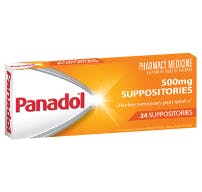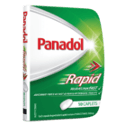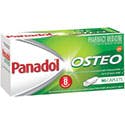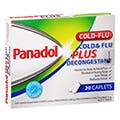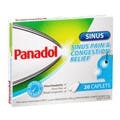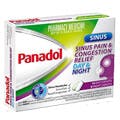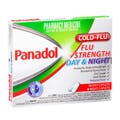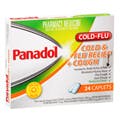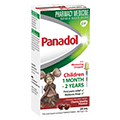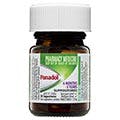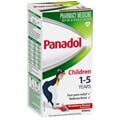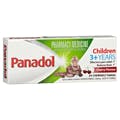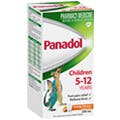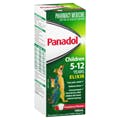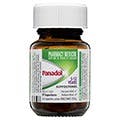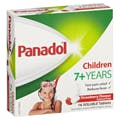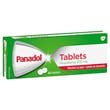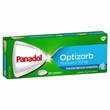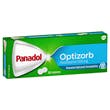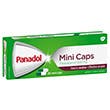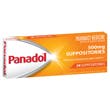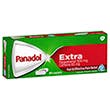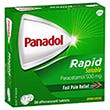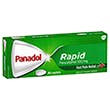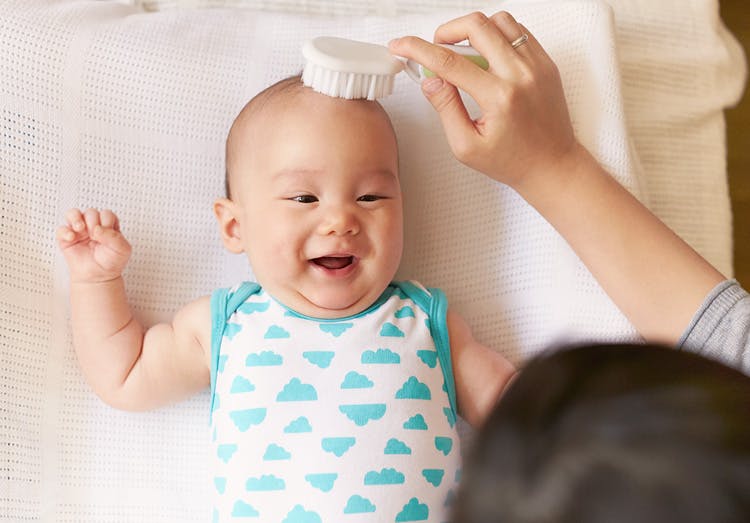

Colourfree Baby Drops 1-2 Months

Colourfree Suspension 1-5 Years

Chewable Tablets 3+

Suppositories 6 Months - 5 Years

Colourfree Suspension 5-12 Years

Elixir 5 - 12 Years

Suppositories 5-12 Years

Soluble 7+

Panadol Tablets

Panadol Caplets with Optizorb Formulation

Panadol Tablets with Optizorb Formulation

Panadol Gel Caps

Panadol Mini Caps

Panadol Suppositories

Panadol Back & Neck

Panadol Extra Caplets

Panadol Rapid Soluble

Panadol Rapid Caplets

Panado Rapid Handipak

Panadol Back & Neck Long Lasting

Panadol Osteo

Panadol Cold & Flu + Decongestant

Panadol Cold & Flu - Flu Strength (Day & Night)

Panadol Cold & Flu Relief + Cough

Panadol Cold & Flu MAX Hot Lemon
Compare Now (0/5)
- Product
- Format
- Age
- Key Features
- Ingredients

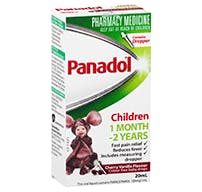
Colourfree Baby Drops 1-2 Months
- Concentrated Drops
- 1 Month - 2 Years
- Gentle on Tiny Tummies
- 500mg Paracetamol
- No gluten, lactose or sugar

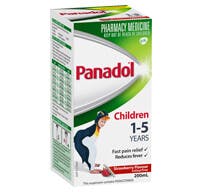
Colourfree Suspension 1-5 Years
- Suspension
- 1-5 Years
- Strawberry/Orange Flavour
- Active Ingredient: Paracetamol 24 mg/mL

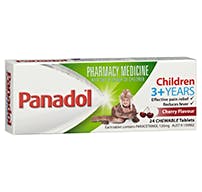
Chewable Tablets 3+
- Dissolvable Tablets
- 1-5 Years
- Perfect For Travel
- Active Ingredient: 120mg of Paracetamol per tablet

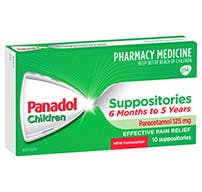
Suppositories 6 Months - 5 Years
- Suppositories
- 6 Months - 5 Years
- For vomiting
- Active ingredient: Paracetamol 125mg per suppository.

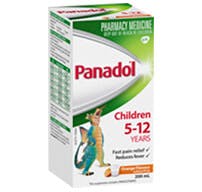
Colourfree Suspension 5-12 Years
- Suspension
- 5-12 Years
- Strawberry/Orange Flavour
- Active ingredient: Paracetamol 48 mg/mL

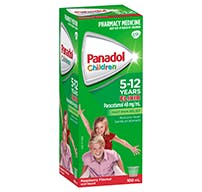
Elixir 5 - 12 Years
- Suspension
- 5-12 Years
- Fast & gentle relief
- Active ingredient: Paracetamol 48 mg/mL

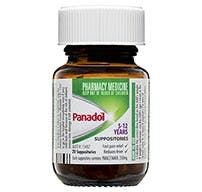
Suppositories 5-12 Years
- Suppositories
- 5-12 Years
- For vomiting
- Active ingredient: 250mg Paracetamol per suppository

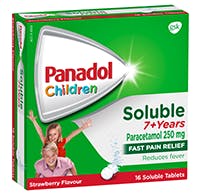
Soluble 7+
- Effervescent Tablets
- 7+ Years
- Absorbed quicker
- Active ingredient: Paracetamol

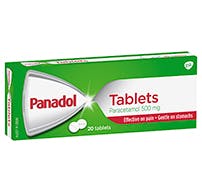
Panadol Tablets
- Tablets
- 12+ Years
- Basic Pain
- Active ingredient: 500mg Paracetamol

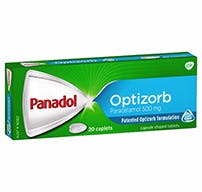
Panadol Caplets with Optizorb Formulation
- Caplets
- 12+ Years
- Quicker Absorbtion
- Active ingredient: 500mg Paracetamol

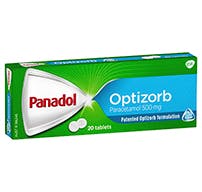
Panadol Tablets with Optizorb Formulation
- Tablets
- 12+ Years
- Quicker Absorbtion
- Active ingredient: 500mg Paracetamol

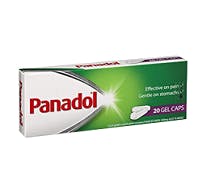
Panadol Gel Caps
- Caplets
- 12+ Years
- Easier to swallow
- Active ingredient: 500mg Paracetamol

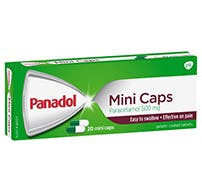
Panadol Mini Caps
- Caplets
- 12+ Years
- Easier to swallow
- Active ingredient: 500mg Paracetamol

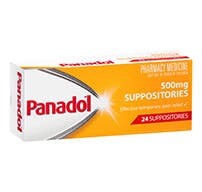
Panadol Suppositories
- Suppositories
- 12+ Years
- For vomiting
- Active ingredient: 500mg Paracetamol per suppository.

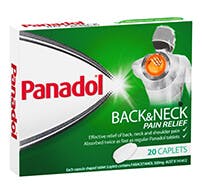
Panadol Back & Neck
- Caplets
- 12+ Years
- Fights Back Pain
- Active ingredient: 500mg Paracetamol

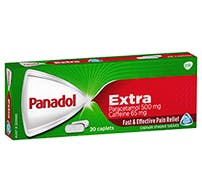
Panadol Extra Caplets
- Caplets
- 12+ Years
- Fight Tough Pai
- Active ingredient: 500mg Paracetamol , 65mg caffeine

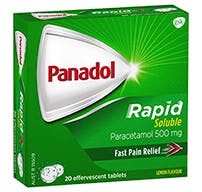
Panadol Rapid Soluble
- Dissolvable Tablets
- 12+ Years
- Absorbed 2x Faster
- Active ingredient: 500mg Paracetamol

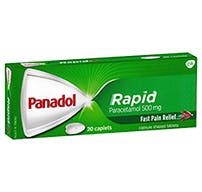
Panadol Rapid Caplets
- Caplets
- 12+ Years
- Absorbed 2x Faster
- Active ingredient: Paracetamol

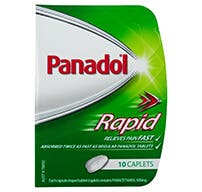
Panado Rapid Handipak
- Caplets
- 12+ Years
- Absorbed 2x Faster
- Active ingredient: 500mg Paracetamol

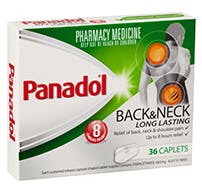
Panadol Back & Neck Long Lasting
- Caplets
- 12+ Years
- Up to 8 hours
- Active ingredient: 655mg Paracetamol

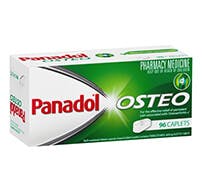
Panadol Osteo
- Tablets
- 12+ Years
- Up to 8 hours
- Active ingredient: 665mg Paracetamol

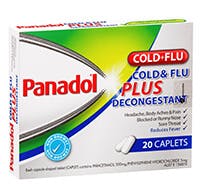
Panadol Cold & Flu + Decongestant
- Caplets
- 12+ Years
- With Decongestant
- 500mg Paracetamol

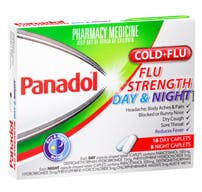
Panadol Cold & Flu - Flu Strength (Day & Night)
- Caplets
- 12+ Years
- Day & Night Relief
- 500mg Paracetamol

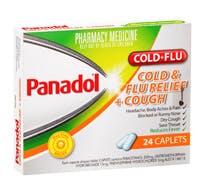
Panadol Cold & Flu Relief + Cough
- Caplets
- 12+ Years
- Cough Relief
- 500mg Paracetamol
Minimise
Baby Reflux
About reflux
This is common in babies, due to an immature or weak muscle between the baby’s stomach and oesophagus. This allows the milk to escape from the stomach and flow back up, sometimes bringing stomach acids with it. There are several forms of reflux, ranging from mild (often called ‘posseting’) to severe (often called gastro-oesophageal reflux disease, or GORD).

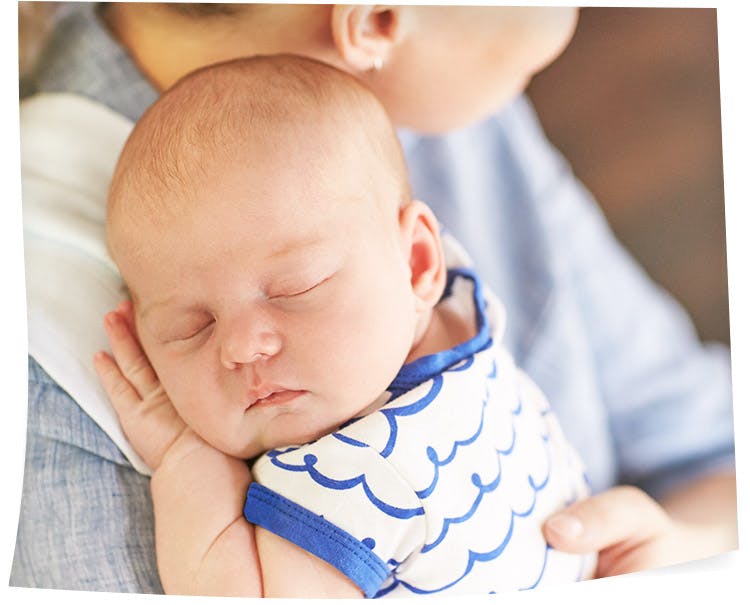

When burping, hold your baby gently – don’t pat vigorously or bounce them up and down.
Posseting (vomiting small amounts of milk)
Posseting refers to bringing up milk after a feed. It’s annoying because it’s messy, and worrying because you wonder whether the baby’s getting enough nourishment. Posseting causes no pain or discomfort, and is no cause for concern if your baby is happy, feeds well and gains weight. It usually settles at around 6 months when your baby is sitting. If your baby is happy, alert and putting on weight, there is no need for medical intervention.
Reflux (gastro-oesophageal reflux disease, or GORD)
This more severe form of reflux can be similar to adult heartburn — discomfort or a burning sensation due to stomach acids leaking back into the baby’s sensitive oesophagus, along with the milk, causing inflammation. The condition can be difficult to diagnose, especially in cases where the milk does not come out of the baby’s mouth (as it does in posseting). Sometimes milk or stomach acid is only regurgitated as far as the oesophagus or throat (called ‘silent reflux’). This still causes the baby discomfort and there is usually disruption to feeding and possibly sleeping patterns. Babies may cry during or shortly after a feed, pull off the breast, arch their back, become rigid, writhe, kick or throw out their arms. They are not happy babies.

.png?auto=format)
Managing posseting and mild reflux
- Change your baby’s nappy before a feed rather than after.
- Lay a pillow or folded towel under their head and shoulders on the change table.
- Wipe their bottom by turning them on their side, rather than pulling their legs up to the tummy (which puts pressure on the baby’s stomach and forces milk and acid into the oesophagus).
- Give your baby tummy time on the floor before feeding, rather than after.
- While feeding, hold your baby in a more upright position.
- When burping, hold your baby gently – don’t pat vigorously or bounce them up and down.
- After feeding, sit them semi-upright in a baby chair or rocker, or carry them in a pouch for 15 minutes, to help settle the milk.
- Some parents find that elevating the head end of the cot helps.
Posseting causes no pain or discomfort, and is no cause for concern if your baby is happy, feeds well and gains weight.
Tips
- During floor play, lay your baby on an absorbent quilt, which can be machine washed.
- Put towels on the floor around you when feeding.
- Choose bibs with elastic around the neck, or Velcro fasteners, which are easy to take on and off. Make sure the bib is wide enough to cover the shoulders, and extends around the back of the neck, to catch those unexpected possets.
When to seek help
- If there is blood or bile (yellowish fluid) in baby’s vomit.
- If there is blood in baby’s bowel motions.
- If they have severe vomiting or projectile vomiting.
- If they are losing weight or have poor weight gain.
- If they refuse to feed.
- If they find it difficult to swallow or choke easily.
- If they have a recurrent cough.
- If they are persistently unsettled and crying.
Possible medical treatment
- Tests to show if reflux is occurring.
- Medication – either to help empty the stomach more quickly or to reduce acid production by the stomach.
- A powder to mix with your breastmilk or formula, to thicken it and help keep down the milk.
- If it’s severe, or there is no improvement, and/or your baby remains distressed or is not gaining weight, ask your doctor to refer you to a paediatric gastroenterologist.
Support organisations
For more information you can visit websites such as the Reflux Infants Support Association (RISA), formerly the Vomiting Infants Support Association (VISA): www.reflux.org.au








